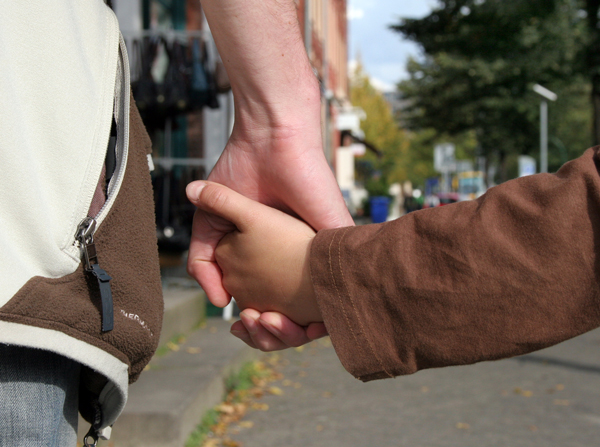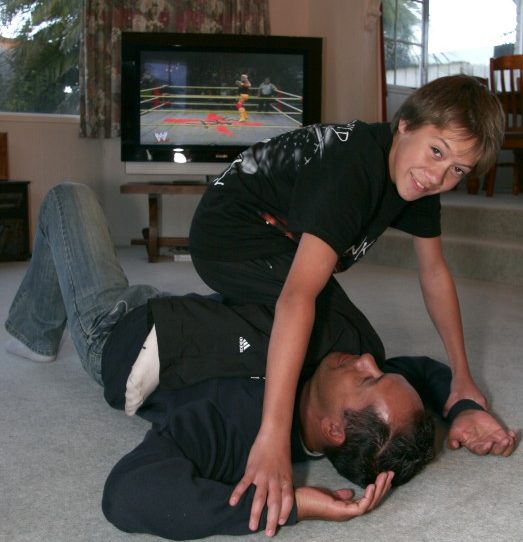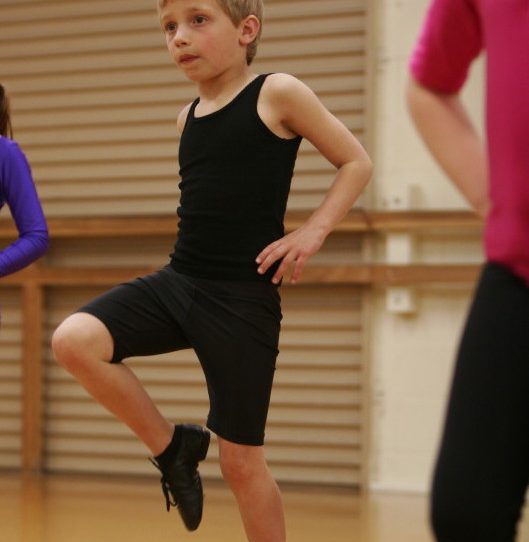Dad’s Corner: One Child’s Game—One Grown-up Lesson for Dad

If there is ever a handbook for fathers on how to behave during their child’s soccer game, I would be the first one to buy it. I would swap a copy of a first edition of a Superman comic book for one single piece of advice on how to parent judiciously and lovingly to a childhood soccer player.
A while ago my eleven-year old son’s soccer team had an important game on their schedule. On a Monday night, I asked my son’s coach if Fritz was to play. Fritz himself was very keen but due to him lagging behind in the training schedule I would have understood if other boys were being given priority. “Yes, sure,” he reassured me. “Fritz will be playing.”
To cut the matter short: Fritz did not play! After the warm-up and the announcement of the team line-up he came to me and said: “I won’t be playing yet.” “Okay,” I replied. “But keep warm anyhow, keep moving, do some stretches so that you are loose when you get into the game.” Then I watched Fritz run up and down once or twice on the sideline before he began chatting to the other guys who weren’t playing yet either. The athlete in me obviously was annoyed: “Hey, keep moving, don’t just stand around. Show your coach that you are ready!” I was thinking to myself. My fatherly side, however, tried to calm me down: “He doesn’t seem to mind if he only goes in later.”
It was a tight game. At halftime, Fritz’ team led by 3-2. When the boys came out of the locker room full of enthusiasm and motivation after the halftime break, Fritz said: “I won’t be playing at first!” It nearly sounded like an apology. We cheered on the boys, we were clapping and yelling. I heard Fritz hollering and motivating his team mates. And I had a bad feeling…that my son would not be playing at all. The clock was ticking down and I got more nervous by the minute. I looked at Fritz and saw that he was increasingly torn between cheering on his team mates and his own disappointment. I was undecided, too: Should I go to the coach and tell him that now would be the time to let Fritz play for the remaining minutes? Or should I accept his authority as the coach? How far did my responsibility as a father go here? Am I a better role model for Fritz as the dad who does everything so his son is allowed to play, or as the sportsman who accepts the coach’s decisions? I was paralyzed—until the end of the game.
The boys won. Some ran to Fritz and yelled: “This victory is also yours!” Fritz was fighting tears and shyly celebrated with them. When the team thanked us parents with a “Wave,” Fritz joined them insecurely. Afterwards he asked me: “Why should I thank anyone—I haven’t even played?” When I congratulated the coach I explained to him that I was happy for the team, but that I wished that Fritz had gotten to play and that none of the boys deserved just having to watch the game without playing themselves. The coach replied what a soccer trainer probably has to reply in such a situation: “This is the way it sometimes is in soccer.” Yeah, sure, I thought: And the ball is round and has to be kicked into a rectangle. I was angry and unable to deal with my disappointment. Why did Fritz have to be put through this ordeal? My eleven-year old son was struggling between being sad and upset deep inside and pretending to be cool on the outside. I had often told him that he could always learn something from all situations in life. But what lesson did he learn that night? That he should rather become a runner than a soccer player? That life’s not a beach? I could have forced myself to explain to him that soccer sometimes was a bit strange and that weird things happened once in a while, a parent’s lame attempt to sugar coat the situation. This, however, would still not really have explained why Fritz had not been allowed to play.
I thought it was great how he had reacted and how he, despite his disappointment, had been happy for his team mates and cheered them on and congratulated them. And all of a sudden I realized who—in my eyes—was the real winner of the night: Fritz! I told him that it was just as great an achievement to sincerely cheer on your team while in your tummy you felt the severe disappointment of not being allowed to play, as it would have been to have played on the field. He should feel every bit a winner, just like the other boys.
Nevertheless, I felt that I owed it to my son to chat with his coach. So the next day I asked the coach to explain to me why Fritz had not played. He told me something about the flow of the game and that you shouldn’t interrupt it by interchanging players. Flow of the game? That sounded like advanced soccer school. If Fritz was our national defender, I would have agreed with the coach right away. But we were talking about eleven-year old boys who want to kick goals and afterwards be surprised by what they find in their McDonald’s Happy Meal bag. I didn’t know what to say.
Later I told Fritz what the coach had said. “Flow of the game?” he asked, looking at me curiously. “We haven’t learned that yet.” It was as if I had asked him about a math exercise which was only to be dealt with in the coming school year. As sensitively as possible I tried to find out whether his self-confidence had suffered much: “So is it a problem now to go to training?” “No,” he replied right away. “I now want to become better than the one currently playing on my position.” And then he said something that sounded so grown-up but that only a child can say: “I train to play, not to win.” Fritz didn’t care so much about winning a game; the goal was to be on the field—playing with his playmates. Hard work was the price of being allowed on the field on game days—to win was just an extra.
Crazy: I hadn’t seen it with such simplicity for a long time. We adults might have lost this easiness. While Fritz’s coach and I have been struggling with finding ways to explain the situation, his team mates did the simplest and the best thing they could do: They got him on the playing ground when they celebrated their victory. So actually it is the children who are writing the practical handbook on how adults should behave during their kids’ soccer games. We just have to be able to read them.
- Posted March 4, 2009
© Copyright 2009-2024 by Take The Magic Step®. All Rights Reserved.




